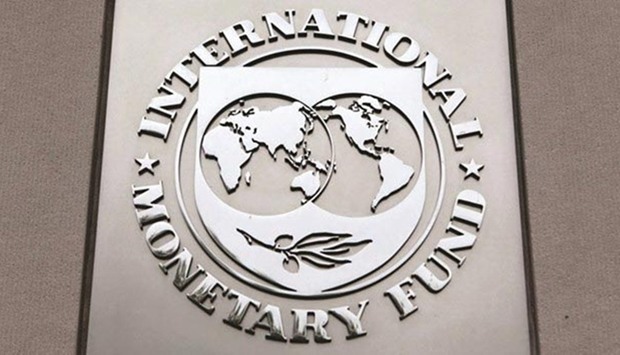The direct economic and financial impact of the diplomatic rift on Qatar is fading and the crisis has acted as a catalyst for self-reliance in food production but it should not translate as import substitution, the International Monetary Fund (IMF) has said.
Finding that (Qatari) authorities are advancing a structural reform agenda to improve the business environment, with the diplomatic rift having provided impetus to speed up such reforms, IMF said the situation has acted as a catalyst for enhancing domestic food production and reducing reliance on a small group of countries.
"Though a welcome move, self-reliance should not translate into import-substitution policies with attendant inefficiencies, but rather be used to tap into regional and global value chains," the Bretton Woods institution said in Article IV consultation with Qatar.
Although economic activity was affected (due to the embargo), this has been mostly transitory and new trade routes were quickly established, it said.
Nine months into the blockade, Qatar has swiftly strengthened its maritime diplomacy by establishing direct shipping lines with Turkey, Oman, Iran, India, China, Taiwan, South Korea and Malaysia, while plans are afoot to establish direct shipping lines from Hamad Port to North Africa region, including Tunisia and Morocco.
IMF also found that the Qatari authorities are increasingly focusing on enhancing AML/CFT (anti money laundering/ combating of financing of terrorism) effectiveness and strengthening anti-corruption regimes.
"They are putting in place a comprehensive mechanism to implement targeted financial sanctions and managing risks posed by non?profit organisations. In addition, priority is given to the combating of terrorist financing legal framework, and the assessment of national risks," it said.
Terming that Qatar’s privatisation initiatives in some sectors, for example health and education, are steps in the right direction, it said (Qatari) authorities also plan to set up special economic zones (SEZs), which are expected to stimulate diversification efforts and encourage foreign direct investment.
In establishing SEZs, special attention should be paid to designing tax incentives and labour policies to avert market distortions, it said, adding such schemes should also be cognisant of the objective to reduce fiscal dependence on hydrocarbons.
Qatar could make further progress in enhancing contract enforcement by reducing the time and costs associated with settling commercial disputes and by strengthening the insolvency mechanism, it said, adding the Supreme Council for Economic Affairs and Investment has approved the second national development strategy that would help address some of these challenges.
Work is ongoing in ensuring majority foreign ownership of companies. Qatar has also announced visa-free entry for citizens of 80 nationalities to stimulate tourism, approved a draft law to grant permanent residency to foreigners who provide “outstanding services to Qatar”, put in place a worker dispute settlement committee, and a trust fund in case workers face bankruptcy.
In addition, the (Qatari) authorities are considering establishing a minimum wage under the International Labour Organisation framework and a new law to protect expatriate labour providing domestic help.
"Though a welcome move, self-reliance should not translate into import-substitution policies with attendant inefficiencies, but rather be used to tap into regional and global value chains," the Bretton Woods institution said in Article IV consultation with Qatar.
Although economic activity was affected (due to the embargo), this has been mostly transitory and new trade routes were quickly established, it said.
Nine months into the blockade, Qatar has swiftly strengthened its maritime diplomacy by establishing direct shipping lines with Turkey, Oman, Iran, India, China, Taiwan, South Korea and Malaysia, while plans are afoot to establish direct shipping lines from Hamad Port to North Africa region, including Tunisia and Morocco.
IMF also found that the Qatari authorities are increasingly focusing on enhancing AML/CFT (anti money laundering/ combating of financing of terrorism) effectiveness and strengthening anti-corruption regimes.
"They are putting in place a comprehensive mechanism to implement targeted financial sanctions and managing risks posed by non?profit organisations. In addition, priority is given to the combating of terrorist financing legal framework, and the assessment of national risks," it said.
Terming that Qatar’s privatisation initiatives in some sectors, for example health and education, are steps in the right direction, it said (Qatari) authorities also plan to set up special economic zones (SEZs), which are expected to stimulate diversification efforts and encourage foreign direct investment.
In establishing SEZs, special attention should be paid to designing tax incentives and labour policies to avert market distortions, it said, adding such schemes should also be cognisant of the objective to reduce fiscal dependence on hydrocarbons.
Qatar could make further progress in enhancing contract enforcement by reducing the time and costs associated with settling commercial disputes and by strengthening the insolvency mechanism, it said, adding the Supreme Council for Economic Affairs and Investment has approved the second national development strategy that would help address some of these challenges.
Work is ongoing in ensuring majority foreign ownership of companies. Qatar has also announced visa-free entry for citizens of 80 nationalities to stimulate tourism, approved a draft law to grant permanent residency to foreigners who provide “outstanding services to Qatar”, put in place a worker dispute settlement committee, and a trust fund in case workers face bankruptcy.
In addition, the (Qatari) authorities are considering establishing a minimum wage under the International Labour Organisation framework and a new law to protect expatriate labour providing domestic help.


